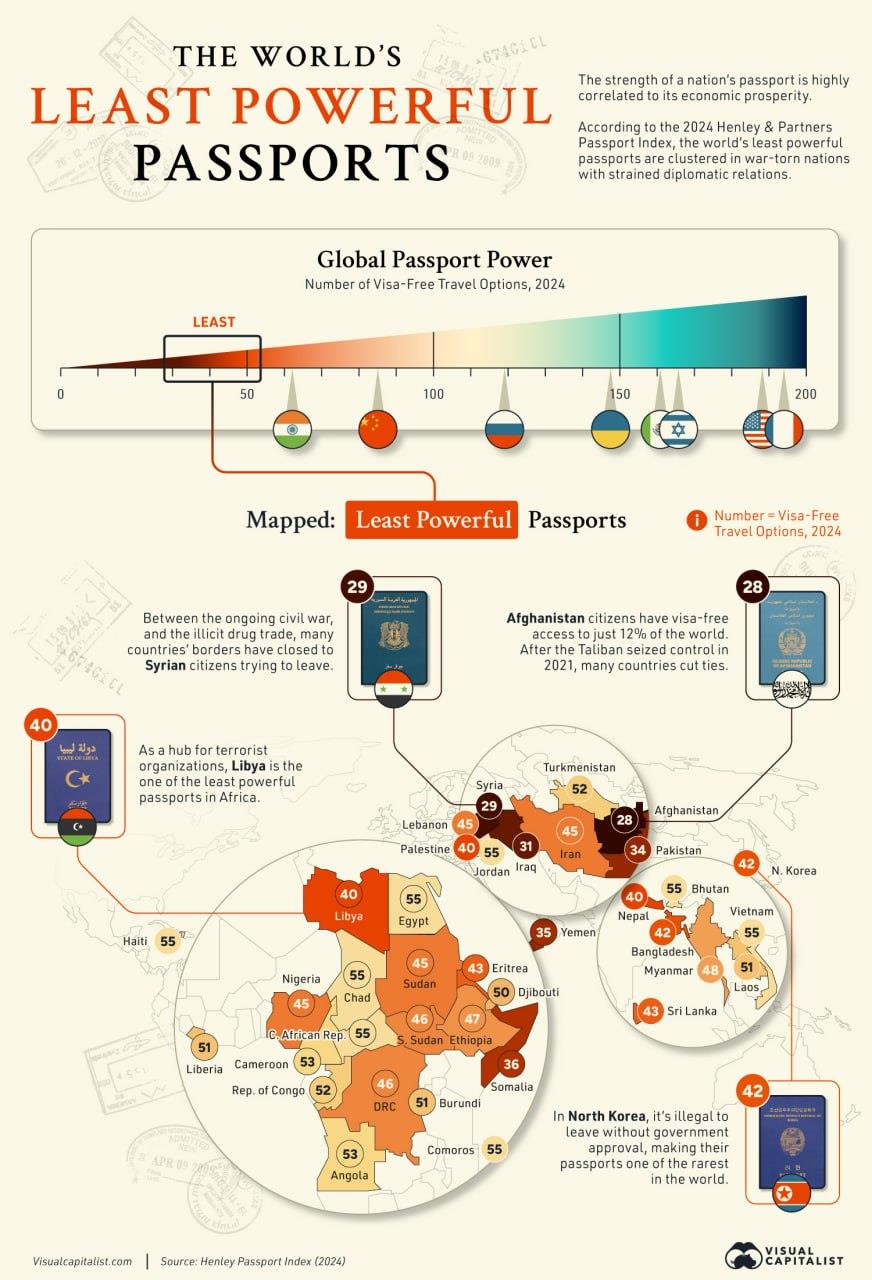Phnom Penh (FN), Mar. 1 – Afghanistan, with the least powerful passport, has access to just 12% of countries globally.
By contrast, top-ranking passports such as Japan, have visa waivers to 85% of the world. This imbalance can be explained by political factors, including the Taliban’s return to power in 2021, along with economic reasons.
Often, countries with high economic instability face greater difficulty in traveling internationally since there may be greater risk of staying beyond the length of their visa. The reverse is seen with high GDP countries, where countries open their borders due to higher economic dividends through tourism and trade.
Syria is the second-lowest ranking country, falling closely behind Afghanistan. Since the war broke out in 2011, nearly half the population, which was 22 million at the time, have fled. Adding to this, the Assad government has notoriously used billions of dollars through the illicit drug trade to fund activities.
Even North Korea, with visa waivers to 42 countries, has greater mobility than these countries, although citizens rarely leave the country because they must have government approval in order to travel.
This article was originally published on Visual Capitalist.
=FRESH NEWS
